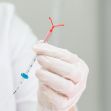Christie West underwent an emergency partial hysterectomy to remove a dysfunctional birth control device called Essure, manufactured by Bayer AG. Ariel Grace died at birth due to injuries to her mother that were caused by the same faulty sterilization implant. These tragedies are two of the almost 39,000 claims against Bayer AG that led to a $1.6 billion settlement agreement on August 20, 2020.
The settlement, which covers all jurisdictions with significant numbers of Essure cases, will resolve over 90% of the pending claims against the German-based pharmaceutical giant. Bayer AG had acquired Essure when it purchased Conceptus Inc., a medical device manufacturer headquartered in Mountain View, California, for $1.1 billion in 2013.
After the settlement, Bayer did not admit wrongdoing or liability. A statement from the company said, “With the settlements, Bayer resolves virtually all of the U.S. Essure litigation so that the company can focus on its commitment to women’s health, where it has long been a leader…” It also expressed sympathy for the women “who experienced adverse health conditions,” but made it clear that it continues to stand by the science supporting the safety and efficacy of the controversial device that consists of metal coils that are inserted into fallopian tubes in order to block the transport of eggs from the ovary to the uterus.
The case was set to be heard in a California Joint Council Coordinated Proceeding (JCCP) and in the U.S. District Court for the Eastern District of Pennsylvania. Bayer AG had filed a motion protesting these venues while questioning California’s ability to “manage a nationwide proceeding.” In her opinion, Alameda County Superior Court Judge Winifred Y. Smith stated “…in a JCCP, unlike a class action, the coordinated proceeding is an aggregation of individually filed cases and the court cannot refuse to exercise jurisdiction.”
Essure promised its device would provide permanent birth control after non-surgical implantation.
This promise was often tragically broken and led thousands of women to share their personal stories online through a Facebook group. Named Essure Problems, the group was started by one concerned woman, Angie Firmalino, who had her Essure device implanted in 2009. She suffered severe bleeding and pain and sought medical care. A medical exam revealed that her symptoms were caused by the migration of her Essure device out of her fallopian tubes and into her uterus.
Firmalino became a patient advocate who wanted to warn other women about the dangerous device, and Essure Problems soon had thousands of grateful group participants. Online, they learned that their symptoms were far from unique. They discovered that many other women had severe pelvic pain, autoimmune problems, organ damage, hair and tooth loss, miscarriages and even deaths. Some devices had to be surgically removed when one of their metal hoops punctured the walls of their uteri or fallopian tubes. Many initiated lawsuits.
In addition to their medical claims, plaintiffs claimed they were never warned about the serious side effects that occurred after Essure was implanted, even though the Food and Drug Administration (FDA) regulations require such reports from companies that learn of injuries related to their devices.
The Essure lawsuit became the subject of “The Bleeding Edge,” a Netflix documentary that traced the development of the lawsuit and told Firmalino’s story along with two others. Several of those interviewed for the documentary sharply criticized the FDA for allowing “tremendous underreporting,” relying on “self-reporting by manufacturers,” and not mandating that physicians must report patient complaints to the government agency.
Unsealed court documents cited in several news reports state that “Bayer AG systematically failed to report to U.S. authorities thousands of complaints.” The FDA’s own report, “Problems Reported with Essure,” states that it received 47,856 adverse medical device reports (MDR) related to Essure between November 2002 and January 2020, most of which were from affected women. Both Bayer AG and Conceptus Inc. failed to submit the majority of reports until Bayer AG finally submitted them in 2016, fourteen years after the first complaints were received from women.
An analysis of 5000 patient complaints submitted to the court as part of the litigation found that the lack of reporting began with Conceptus before it was acquired by Bayer AG. Conceptus vastly under-reported patient complaints. Sasha Chavkin, writing for the International Consortium of Investigative Journalists, reported that only 5.5% of the complaints received by Conceptus were reported to the FDA when 25% required review by the government agency.
In addition, 78% did not adequately explain why the majority of complaints were not forwarded, and 89% did not comply with FDA complaint investigation rules. Bayer AG disputed these conclusions, stating they were drawn from testimony from paid witnesses who were not statisticians.
Prior to the settlement, plaintiffs had asked the FDA to take Essure off the market, which it finally did on December 31, 2018, according to the FDA. On that date, it ordered Bayer to stop selling and distributing the device in the U.S., although it allowed health care providers to continue implanting it for a year after the date of purchase. All other countries had stopped selling the device in 2017.
Bayer’s press release in response to the order was an announcement of voluntary discontinuation of sales and distribution of Essure “based on declining sales.” Essure’s relation to women’s health and safety was not mentioned.
The FDA states that it is conducting ongoing clinical studies about Essure, writing on its website that “Women who have been using Essure successfully to prevent pregnancy can and should continue to do so. Post-market safety monitoring for women who have Essure implanted remains a top priority for the agency. We will continue to communicate publicly about new findings.”






